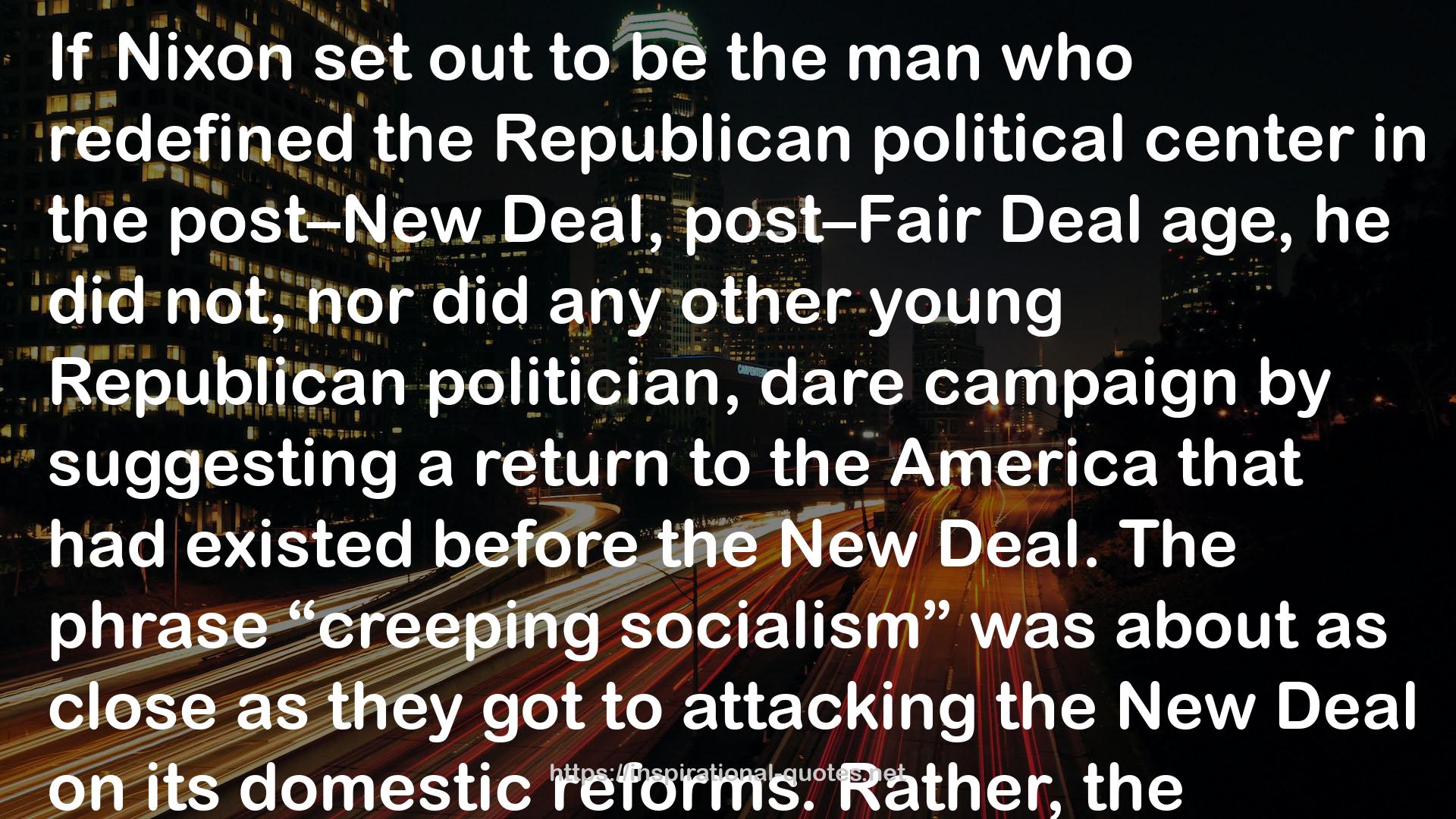" If Nixon set out to be the man who redefined the Republican political center in the post–New Deal, post–Fair Deal age, he did not, nor did any other young Republican politician, dare campaign by suggesting a return to the America that had existed before the New Deal. The phrase “creeping socialism” was about as close as they got to attacking the New Deal on its domestic reforms. Rather, the catchphrases were about a need to return to Americanism. It was better to attack Communism and speak of domestic treason than it was to be specific about reversing the economic redistribution of the New Deal. In fact, Nixon’s essential response to all issues was to raise the specter of Communism: “The commies,” Nixon told the Chicago Tribune’s Seymour Korman during his harsh 1950 senatorial campaign against Helen Gahagan Douglas, “don’t like it when I smash into Truman for his attempted cover-up of the Hiss case ... but the more the commies yell, the surer I am that I’m waging an honest American campaign.” He was, he liked to say, the number one target of the Communists in America. In those early campaigns, he was, it seemed, a man who needed an enemy and who seemed almost to feel that he functioned best when the world was against him. Such men, almost surely, eventually do get the enemies they so desperately want. If the leaders of a nation as powerful as the United States needed, above all, personal confidence—Oliver Wendell Holmes once said of the young Franklin Roosevelt that he had a third-rate intellect but a first-rate temperament—Nixon was ill-prepared for his long journey in American politics. Emotional strength and self-confidence were missing from him. Everything with Nixon was personal. When others disagreed with him, it was as if they wanted to strip away his hard-won veneer of success and reduce him to the unhappy boy he had once been. In political terms that had bitter consequences: He would lash out at others in attacks that seemed to go far beyond the acceptable norms of partisanship; if others struck back at him, he saw himself as a victim. Just beneath the surface of this modern young politician was a man who, in Bob Taft’s phrase, seemed “to radiate tension and conflict.” He was filled with the resentments of class one would have expected in a New Deal Democrat. "
― David Halberstam , The Fifties
